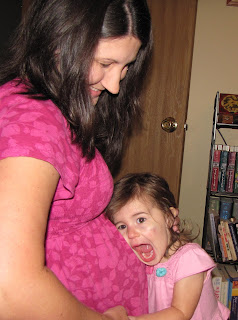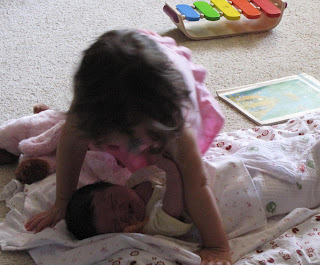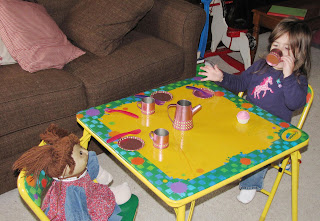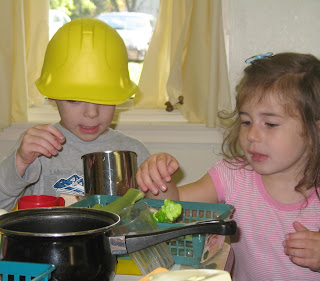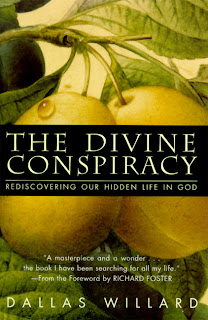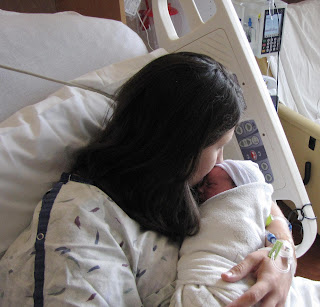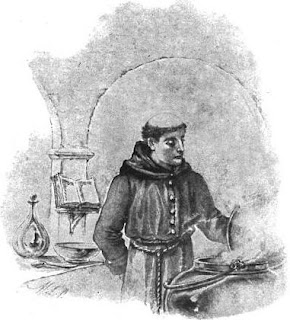Category Archives: daily life
Our Sacred Imagination (part two)
Could we continue the conversation about making our imaginations sacred?
I love the idea of nurturing my children’s imaginations to be used for God.
Imagination is beautiful. The way in which we use our imagination makes it sacred.
I was reading Isaiah 6, the chapter in which Isaiah receives his call from God, and I saw something I hadn’t noticed before.
Before Isaiah gives his famous plea, “Here am I. Send me!”, even before God calls for someone to go for Him, Isaiah is given a vision of God on His throne.
I saw the Lord seated on a throne, high and exalted, and the train of His robe filled the temple.
Do you see it?
The vision preceded the call.
The vision of God is what changed Isaiah, what inspired him to take on the enormously difficult task of delivering God’s message.
Vision requires imagination. Sacred imagination.
Too often we want to go straight to the take-away, straight to our to-do list.
Instead, perhaps we should pause. Let God inspire us and change our hearts by filling our imaginations with a vision of Him.
Have you heard of lectio divina? I heard it mentioned in a Mars Hill interview recently, so I started digging for information.
It is the practice of Scripture reading, meditation and prayer intended to promote communion with God and to increase the knowledge of God’s Living Word. It was practiced by church fathers such as Ambrose and Augustine.
Meditative contemplation. Find a quiet space and something on which to focus. Scripture, something visual like nature or art, anything will do.
Contemplate God. Let the vision of who God is fill up your imagination. It is only the glimpse of the glory of God that can truly change us and give us what we need to fulfill whatever task has been asked of us.
God makes sacred our imaginations by filling us with a glimpse of Himself that changes us forever.
…among the lampstands was someone “like a son of man,” dressed in a robe reaching down to his feet and with a golden sash around his chest. His head and hair were white like wool, as white as snow, and his eyes were like blazing fire. His feet were like bronze glowing in a furnace, and his voice was like the sound of rushing waters. In his right hand he held seven stars, and out of his mouth came a sharp double-edged sword. His face was like the sun shining in all its brilliance. ~ Revelation 1
…there before me was a throne in heaven with someone sitting on it. And the one who sat there had the appearance of jasper and carnelian. A rainbow, resembling an emerald, encircled the throne…From the throne came flashes of lightening, rumblings and peals of thunder…”Holy, holy, holy is the Lord God Almighty, who was, and is, and is to come”…They lay their crowns before the throne and say: “You are worthy, our Lord and God, to receive glory and honor and power, for you created all things, and by your will they were created and have their being.” ~ Revelation 4
art credits: St. Augustine by Sandro Botticelli; Nebula by Dez Pain
Our Sacred Imagination (part one)
“Take a drink, Mommy!”
My eldest daughter offers me a sip from her little tin tea cup.
“Mmmm! Delicious! What is it?”
“Applesauce. I made it myself.”
I love watching my eldest’s imagination blossom and flourish. Already, her younger sister is joining in the pretend play, offering me a bite from her fork or a sip from her cup.
Our imaginations are a beautiful gift from God.
Imagination helps us to create inviting homes, solve difficult problems, invent new ways of doing things, build beautiful buildings, plan delicious gardens, come up with ways of serving others.
Imagination is what allows us to create…anything.
But does it belong in our God-life? Does imagination belong in our prayer, our Bible reading, our relationship with our Father?
Many would say no. Many would say that using our imagination when it comes to Scripture or to God is dangerous, allowing our own selves to take precedence over what God has spoken.
When God looked at what He had made, His earth and His man, He declared it to be good. Very good.
I presume that He did not mean “it is all very good except for that imagination piece of man’s soul”. In fact, God asked Adam to use his imagination right away when He asked him to give names to all of the animals.
Our imagination, along with everything else in our lives, is to be made sacred.
How? How can we use our imagination in our God-life in a way that is good and sacred?
In his book, Resounding Truth, Jeremy Begbie says that using imagination is required when thinking through issues of theology. He is quick, of course, to offer the qualification that
this is not an invitation to uncontrolled fantasy or fiction, as if we should conjure up ideas out of thin air. By imagination here I am speaking of the ability to perceive connections between things that are not spelled out, not immediately apparent on the surface, as well as between what we see now in the present and what we could or will see in the future.
Begbie says that our imagination should be applied to our reading of Scripture:
…trying to perceive broad patterns and unifying threads and to be alert to the themes and counter-themes that crisscross its pages and that together throw into relief guiding convictions about who this Creator God is, what kind of world He has created and relates to, and what our place within this world might be.
He also says that imagination helps us to discern connections between what we perceive in the world and what we perceive in Scripture.
One more aspect of what I wrote about last week!
The third way that Begbie discusses the sacred use of imagination is in living in and living out the connections between Scripture and the world:
The Bible does not spell out the details of Christian behavior for all times, prescribing exact courses of action for every circumstance…Because not all is given to us now, imagination is needed. The church needs to improvise imaginatively – that is, to be so schooled in these texts and scriptural tradition that it can…act in ways that are true to the texts yet engage with the world as it now is, responding in ever fresh and fruitful ways to whatever life throws at us.
What do you think of these ideas? Are these sacred ways of using our imagination or is this too dangerous, having too much potential for abuse?
The Future of the Church
I overheard someone the other day.
I wasn’t trying to “drop any eaves”, but he was speaking quite loudly.
“Our churches are turning into places of moral relativism, places where young people come to hear abstract ideas that have no bearing on their daily lives. What’s the matter with young people today? Why can’t they understand Truth?”
It’s a fair question. It does seem as though many who claim to follow Christ show up at church every now and then but ignore Him at all other times.
This older man’s complaint made me think of a book I read a few months ago: The Divine Conspiracy by Dallas Willard. He speaks of this idea quite a bit and says things such as this:
Consumer Christianity is now normative. The consumer Christian is one who utilizes the grace of God for forgiveness and the services of the church for special occasions, but does not give his or her life and innermost thoughts, feelings and intentions over to the kingdom of the heavens.
Many things in this book caused wonderings to whirl about inside of me (Dallas Willard does this to you). Is this really true, that Consumer Christianity is normative in our time and place? If so, how can I protect my children against this? How can we, as a Church, change this?
It is not often that I find a book that directly and perfectly answers a set of ideas and questions that I have been mulling over, but I found it in this case in a book called Souls in Transition by Christian Smith.
This is a book full of numbers, statistics and research, a book that I struggled in places to understand, but it is also a book about what young adults believe about God and religion and, more importantly to me, what in their youth caused them to believe those things.
I won’t bore you with the details of their research; for this essay suffice it to say that there were significant numbers of youth that were followed and interviewed over many years as they grew up. I surmise that even my statistician brother would be content with their procedures and numbers.
- that the purpose of religion is to help people live good lives
- that the church is not a place of belonging for them so they turn to other, non-religious groups for a sense of belonging from others
- that the religious beliefs that they do hold are abstract – they do not affect the way they live
- that religion is blind faith and without evidence or proof no one can know the truth
How has this happened? How is it that our churches are not giving our teens and young adults a sense of belonging? How is it that even those who attend church have such a disconnect between what they believe and how they live?
As frightening as all of the statistics were, however, the statistics about those young adults who did have a strong internal and external faith were encouraging. It has almost everything to do with the parents.
Did you hear that?
Even in this day when peers are so very influential to teenagers, the parents still have the most influence of all!
That is a beautiful thought.
The importance of faith, prayer and Bible reading in the parents’ lives makes “enormous substantive difference in religious outcomes during emerging adulthood”.
Be encouraged, you parents.
Those of you who pray with your children, read the Bible with your children, show your children how to live a life of faith – it is affecting your children’s hearts and it will be the most important factor (earthly factor, of course!) in the shaping of their adult lives.
I was so relieved when I read those words. I get nervous about the teen years, as do most parents, and was grateful to discover that I and my husband will still be the most important influencers in their lives, even as teenagers.
Yet I still wondered about all of the children who do not have godly parents. Are those children simply out of luck?
And then I read this: almost as effective as having faithful parents was having another supportive, religious adult who played a major role in the teenager’s life.
What grace from God! What a beautiful way to design things: even if the parents of a child do not obey God, as long as someone else is willing to step into that role, the teen will still remain faithful as a young adult.
Do you see what that means?
It is up to us, the church, to influence our world, our teens for God. Grandparents, parents, singles, young adults, it is up to you.
Be encouraged, you church.
God has given you the power to change lives. You who pray, read the Bible and serve – bring a teenager into your circle. You can be a huge influence in shaping their adult life, even if you are not their parent.
Talk with your youth minister, your children’s minister; look around your neighborhood. Find out if there are any nearby who need your support, who need you to listen and to speak truth into their lives.
If we each only took one? I imagine that we could change that “normative consumer Christianity” into normative discipleship Christianity.
That is a beautiful thought.
What Do You Want?
Many of my family and friends have funny stories of me reading books in odd places while I was growing up.
And maybe a few stories from after I had grown up.
I love words and books. Fiction and non-fiction, modern mystery and classic literature, books about God and books about art and books about technology and books about history and books about…
The Chilean poet Pablo Neruda wrote “It’s the words that sing, they soar and descend…I love them, I cling to them, I run them down, I bite into them, I melt them down.”
This is me.
I’ve been discovering lately, though, that this is not always a good thing.
As much good as can come from reading, my books can also take me away from God.
I read to learn but I also read to relax, to be refreshed, to be fulfilled.
Don’t fret, my fellow bibliophiles. I’m not about to tell you to burn all of your books in the name of Jesus.
The trouble comes when I begin to think that I need my books, that I deserve my time to read…and then get angry with whoever stands in the way of that.
When I turn to books to satisfy myself, to fill myself up, when I begin to have arguments with myself over whether to spend time with God or go read my books, that is when my warning lights begin to flash.
When I desire my books more than I desire God, then my books have become an idol.
I know that I am not alone in this. We all have something that tries to take the place of God.
What is it that you cling to? A parent, child or friend? Food or drink? Money, your home, a car, new clothes?
It is hard to understand why clinging to good things can be bad. How could my love for my child possibly be a bad thing?
The Great Divorce by C. S. Lewis, when talking about Mother-love, says this
No natural feelings are high or low, holy or unholy, in themselves. They are all holy when God’s hand is on the rein. They all go bad when they set up on their own and make themselves into false gods.
Isn’t that true about anything here on this earth, that only in their relation to God are they holy or unholy?
My love for reading can be holy or unholy depending on its relation to God.
Why is it that we think we need something other than God to fill us up, to make us satisfied?
As the deer pants for streams of water, so my soul pants for you, O God. My soul thirsts for God, for the living God. When can I go and meet with God? ~ Psalm 42
Sometimes we feel empty because we are clinging to something other than God.
O God, you are my God, earnestly I seek you; my soul thirsts for you, my body longs for you, in a dry and weary land where there is no water.
Sometimes we have to let go before God can fill us up.
Letting go is scary. It takes courage, trust.
Can I tell you something? Something that I know beyond a doubt?
God will not let you down. He really is enough.
I have seen you in the sanctuary and beheld your power and your glory. Because your love is better than life, my lips will glorify you.
You will not feel a lack of anything when you are truly desiring God above all else in your life. His love, His mercy, His company, His spirit…He is our breath, our life, our food, our drink.
I will praise you as long as I live, and in your name I will lift up my hands. My soul will be satisfied as with the richest of foods; with singing lips my mouth will praise you.
We don’t need other people, we don’t need other things. God is gracious and gives us people and things to surround us, but we don’t need them to be satisfied or content, we don’t need them to give us comfort or protection.
On my bed I remember you; I think of you through the watches of the night. Because you are my help, I sing in the shadow of your wings.
God is enough.
Ask Him to help you search your heart. What is it that you desire more than God?
Ask Him to help you to desire Him above all else. Out of His infinite grace, that is a prayer that He will always answer!
My soul clings to you; your right hand upholds me.
Can I Really Know God?
“This is one of the most beautiful things to me.”
I look at her, my mommy-shepherd, wanting her to continue.
“A mother who knows her baby, who knows what her baby needs by being completely attuned to the cues her baby gives her.”
Yes. This is beautiful.
Our conversation drifts to the back of my mind until I am reading Psalm 139, which begins like this:
O Lord, you have searched me and you know me.
My mind leaps back to the beauty of a mother knowing her baby as I read more of the psalm:
…you perceive my thoughts from afar…you are familiar with all my ways. Before a word is on my tongue you know it completely, O Lord…For you created my inmost being; you knit me together in my mother’s womb…All the days ordained for me were written in your book before one of them came to be.
God knows me.
God, the One Who weighs the clouds heavy with snow, knows me even more deeply than a mommy can know her baby.
This is beautiful.
And then I read something that I have read many times. This time, with the beauty of God’s knowledge of me fresh in my mind, I am stunned.
Now we see but a poor reflection as in a mirror; then we shall see face to face. Now I know in part; then I shall know fully, even as I am fully known.
The wonder of this takes my breath away and I want to check, to be sure this is true.
I know that the Old and New Testaments were written in different languages, but I check my Strong’s for the meanings of “know” in both chapters and they are remarkably similar. It is the same kind of knowing.
We will know God as deeply as He knows us.
Stop for just a moment and let that fill up your heart.
Lately my heart has been too full of the mystery of God. I often struggle to see Him in the midst of the busyness, the hurts and disappointments of life.
My heart needs to hear this, to savor it: God wants me to know Him.
I search for more of this truth. If you, too, need this, go slowly. Let God breathe these words into your distant heart and draw you close to Him.
I am the good shepherd; I know my sheep and my sheep know me – just as the Father knows me and I know the Father.
I keep asking that the God of our Lord Jesus Christ, the glorious Father, may give you the Spirit of wisdom and revelation, so that you may know him better.
For I desire mercy and not sacrifice, and the knowledge of God more than burnt offerings.
This is what the LORD says: ‘Let not the wise man boast of his wisdom…but let him who boasts boast about this: that he understands and knows me, that I am the LORD.’
I will give them a heart to know me, that I am the LORD.
I am filled with this beauty.
God knows all of the deepest pieces of me and in all of His knowledge of my dark places, He desires that I know Him just as deeply.
Beautiful.
Scriptures in order: I Corinthians 13.12; John 10.14-15; Ephesians 1.17; Hosea 6.6; Jeremiah 9.23-24; Jeremiah 24.7
Painting is Christ in the House of Martha and Mary by Johannes Vermeer
You Are What You Do
“I don’t feel like obeying today.”
The weird thing is, I think my G-rated language is making me a less angry person. Because here’s the way it works: I’ll get to the subway platform just as the downtown train is pulling away, and I’ll start to say the F-word. I’ll remember to censor myself. So I’ll turn it into “fudge” at the last second. When I hear myself say “fudge” out loud, it sounds so folksy, so Jimmy Stewart-ish and amusingly dorky, that I can’t help but smile. My anger recedes. Once again, behavior shapes emotions.
Historically, the handshake was seen as a democratic gesture…But nowadays, I think the bow has more benefits. Though it may seem pretentious, it’s actually deeply humbling. Just lowering yourself before someone – the universal symbol of modesty – makes you feel more respectful. Behavior shapes your thoughts.
Is it odd that I’m finding wisdom in a comedian?
Yet God did create us with physical bodies, and our physical condition, whether health or posture, does seem to affect our emotions.
If a comedian isn’t authoritative enough, how about Aristotle?
Aristotle also believed that your actions shape your heart:
Men acquire a particular quality by constantly acting a particular way…you become just by performing just actions, temperate by performing temperate actions, brave by performing brave actions.
He also said:
We are what we repeatedly do.
So perhaps, after all, it is not hypocritical to do right things when our hearts are rebelling.
Perhaps, instead, this is how we train our hearts to desire right things.
Perhaps, too, paying attention to our physical bodies, such as our posture while praying, can help us to keep our hearts focused.
And since finding wisdom in a comedian and in an ancient philosopher should never be enough for us, God also gives us instructions for our physical bodies in order to help our hearts become truly His:
These commandments that I give you today are to be upon your hearts. Impress them on your children. Talk about them when you sit at home and when you walk along the road, when you lie down and when you get up. Tie them as symbols on your hands and bind them on your foreheads. Write them on the doorframes of your houses and on your gates. ~ Deuteronomy 6.6-9
Which commandments had God just given them?
Ah. The most important of all.
Love the LORD your God with all your heart and with all your soul and with all your strength. ~ Deuteronomy 6.5
Image credits: A.J. Jacobs from The Year of Living Biblically; cropped from The School of Athens by Raffaello Sanzio
Love the Lord your God
Lately I’ve been hearing and reading a lot about what I should do as a follower of Jesus.
I’ve read about persecuted people who live in third-world countries, families who sell their homes so they can adopt more children, young parents who move to the inner city.
When Jesus calls us to abandon everything we have and everything we are, it’s almost as if he is daring us to put ourselves in the flood plain. To put all our lives…all our property and all our possessions…all our hopes and all our dreams in front of the levee and then to ask God to break it. To ask God to sweep away whatever he wants, to leave standing whatever he desires, and to remake our lives…according to his will. ~ Radical by David Platt
We have to continue to fight – for the individual and against evil and destructive forces – because the cause is always worthy. And once you have stepped into this world, you can never walk away. Once you have been made aware, you have a responsibility to care. ~ The Scent of Water by Naomi Zacharias
I’ve read and heard many important and completely true things.
Jesus does ask us to give up everything for Him.
He said that if we do not hate our own lives, our own families in comparison to Him, we cannot follow Him.
Salvation is free, but discipleship costs everything we have. ~ Billy Graham
As I read and listen, guilt begins to trickle into my heart.
Am I doing enough? Am I living right? Am I giving up everything for God? Am I too comfortable in my current life?
This is a dangerous thought-road for me, partly because I am a firstborn and I love rules.
I like lists and I want to know exactly what I have to do to be in obedience to God.
As I begin to think about our family, however, I am reminded of the things that we are doing for Christ.
Having kids at all is a big step. I didn’t always want children, but God convinced me that this was one way in which He wanted me to serve Him: to have and raise up children who will glorify Him with their lives.
We have made a lot of material sacrifices, both for me to stay home with our children, in order to personally raise them in a way that will glorify Him, and for us to not start adding up debt so that eventually we can have disposable income that we can give back to God.
Could we do more?
Of course. And that is the trouble.
No matter how frugally we live, how much we give away, how much time we sacrifice, it can never be enough.
We could always do more. It is impossible to do enough to repay all that God has done for me. It is impossible to truly give up everything for Jesus.
So what do I do? Wallow in my guilt? Give up because of my inability to do or give enough? Is that really what all of these books and teachers are telling me?
No, but I’m afraid that it seems that way at times.
I am learning however, very slowly, that it is not about what I do or don’t do, it is not about what I give or don’t give. It is about a relationship.
My relationship with the Triune God is what is most important in this life. This is more important than giving away all of my possessions. This is more important than eradicating all of the sin in my life. This is more important than moving to the inner city or telling everyone I know about God.
What I focus on most has to be my desire for God.
Love the Lord your God with all your heart and with all your soul and with all your mind and with all your strength. The second is this: Love your neighbor as yourself. There is no commandment greater than these. ~ Mark 12.30-31
The idea of the primacy of loving and desiring God is made more clear in the writings of Brother Lawrence:
I know that for the right practice of it, the heart must be empty of all other things because God will possess the heart alone. As He cannot possess it alone without emptying it of all besides, so, neither can He act there and do in it what He pleases, unless it be left vacant to Him.
You need not cry very loud. He is nearer to us than we are aware. Every one is capable of such familiar conversation with God; some more, some less. He knows what we can do. Let us begin then. Perhaps He expects but one generous resolution on our part. Have courage.
We must know before we can love. In order to know God, we must often think of Him. And when we come to love Him, we shall then also think of Him often, for our heart will be with our treasure.
What do I desire most of all in this life? Whom do I love best?
If it is not God, than it doesn’t matter how radically I live, how much of my time or resources I give away.
If I do desire God most of all, even if I am simply trying to love God best, than I can trust myself to His hands, knowing that He will change my heart, which will naturally change the way I live. I will know what He wants me to do, how He wants me to live, and I will be at peace even if others think I am not doing enough or not doing the right things.
Again, I will reference Brother Lawrence:
when he had failed to love God best of all, he only confessed his fault saying to God, “I shall never do otherwise, if You leave me to myself. It is You who must hinder my failing and mend what is amiss.” Then, after this, he gave himself no further uneasiness about it.
Abba, please help me to desire You most of all, to love You above all. If left to myself, I will never love You. It is You who must mend my broken heart. It is You who must purify my heart so that my life will glorify You. Let me only pursue my love for You and then be at peace, trusting that You will not let me fail.
To him who is able to keep you from stumbling and to present you before his glorious presence without fault and with great joy – to the only God our Savior be glory, majesty, power and authority, through Jesus Christ our Lord, before all ages, now and forevermore! Amen. ~ Jude 1.24-25
Freedom Under Authority
I did it again.
I yelled with anger at my daughter.
She was not obeying.
Neither was I.
I’ve spoken before about the difficulty of obedience. Could we explore this a little further?
Part of the trouble, I think, is that we have come to view authority with suspicion. We see authority, even the authority of the Church, as being heavy-handed and suppressing. We think that authority keeps us from being truly free, keeps us from being the person we were meant to be.
I was listening to my Mars Hill last week and heard an interview with Victor Lee Austin, the author of Up With Authority, who suggests that we need authority in order to flourish as human beings.
He uses the image of a cellist in an orchestra. There are many pieces of music written for cellists that we can enjoy listening to, but that is only a small piece of what a cellist can do. For the cellist to flourish, for her to be more fully herself, she needs something bigger. For something bigger to exist, we need authority…the conductor.
Authority, instead of crushing freedom (although unrighteous authority certainly can do that), enables and increases freedom. The more involved we are in complex society, the more we need authority making the decisions. Having true authority increases the “ability for persons to act in concert for good that can be achieved by corporate action”.
Back to the orchestra for a moment: Austin says that “the conductor is drawing the cellist forward into a place where she can be more fully herself, which she didn’t necessarily see beforehand and that is through what happens as the orchestra plays”.
If I could trust the authority of God enough to obey Him, I would become more myself, more free, more able to work for God’s glory and the good of those around me.
Which leads me to the biggest reason I don’t obey: I don’t believe God.
That sounds horrid when I say it out loud, but it is true. If I truly believed that God’s way of love was better than Satan’s way of unrighteous anger, that it was more effective, I would show my daughters love rather than rage.
I have been reading Psalm 119 this week and was struck by the psalmist’s eagerness, almost desperation, to obey God:
vs 5-6: Oh, that my ways were steadfast when obeying your decrees! Then I would not be put to shame when I consider all your commands.
vs 10-11: I seek you with all my heart; do not let me stray from your commands. I have hidden your word in my heart that I might not sin against you.
vs 15-16: I meditate on your precepts and consider your ways. I delight in your decrees; I will not neglect your word.
vs 20: My soul is consumed with longing for your laws at all times.
vs 33-34: Teach me, O Lord, to follow your decrees; then I will keep them to the end. Give me understanding, and I will keep your law and obey it with all my heart.
vs 45: I will walk about in freedom, for I have sought out your precepts.
This goes on for 176 verses!
I want so much to desire obedience with such fervor. But how?
I notice two things.
I notice that David spends much of his time in beseeching God to help him obey.
I notice that a delight in obedience seems to begin with a delight in God’s words, an immersion in the words of God.
Aha.
God must change my heart to desire obedience, to desire Him.
In the book, Radical, by David Platt, I recently read this:
The fruit of our salvation…is indeed a gracious gift from God.
I can’t even want to obey God, much less actually obey, without His gracious help.
In order for God to change my heart, I must steep myself in His words.
If I meditate on His words, if I refuse to neglect His words, God will help my heart to begin to believe His promises.
Will you hide His word in your heart along with me? I am memorizing verses 33-34 this week:
Teach me, O Lord, the way of your statutes; and I will keep it to the end. Give me understanding, that I may keep your law and observe it with my whole heart.
Will you join me in memorizing this and praying it to God this next week? What might He do in our hearts?
One last thing I noticed?
Seeking out God’s precepts results in the ability to walk about in freedom.
God’s authority, His laws, gives us the freedom to truly be ourselves!
Praise God from Whom all blessings flow.
~ Will you go here for one more thing to read about the importance of memorizing the Bible?
The Wonder of Learning
Education is the atmosphere we breathe, the envelope of wonder that surrounds us, held by the gravity of our daily habits. ~ Ann Voskamp of A Holy Experience
For in Him we live and move and have our being. ~ Acts 17.28
And daub their natural faces unaware
More and more, from the first similitude.
~Elizabeth Barret Browning
We can begin by regularly reminding ourselves that the God who saves us is the God who made us and all things, that our message of redemption only makes sense in the context of the bigger story about creation. Our God cares about all aspects of our lives, and thus the renewing of our minds is as needful as the cleansing of our hearts.
Loving God and neighbor requires knowledge of the truth about God and the truth about the many challenges and opportunities of human experience in the world God has made.
Oh. There are two different words used in this first chapter of II Peter.
The first one, the word that gives us grace, peace, everything we need, is epignosis (precise/correct knowledge) which is related to epiginosko (to become thoroughly acquainted with, to know thoroughly, to perceive who a person is).
Relationship knowledge.
The second word, the word that Peter urges us to add to our faith along with goodness, self-control, perseverance godliness, brotherly kindness and love? This word is gnosis (general intelligence, understanding, implying science).
Creation knowledge.
Aha.
Once again, all is related, all is woven together into one beautiful, seamless fabric.
Learning, gaining knowledge, is a large part of how we weave the various parts of our lives together into a seamless, sacred whole. Not something to be relegated to school-type hours.
We seek for epignosis, to become thoroughly acquainted with God, so that we may have everything we need for life and godliness.
We seek for gnosis, general understanding about the world He has created, so that we may keep from being ineffective and unproductive in our epignosis of our Lord Jesus Christ.
May we remain in awe of God and retain our sense of wonder in the world (including its creatures, human and otherwise) He has created. May we continue to pursue knowledge in every moment of our daily lives and turn that knowledge into praise and thanksgiving, into loving of all those around us.
art credit: Elizabeth Barrett Browning; Christ in the House of Martha and Mary by Johannes Vermeer

